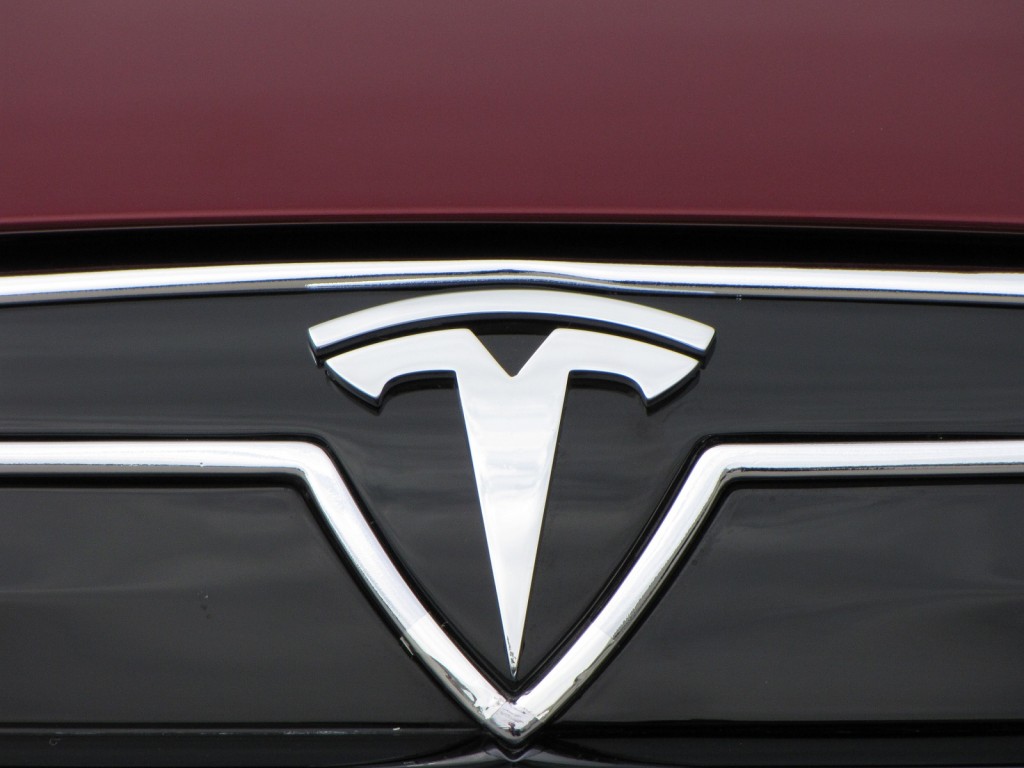With the 2014 BMW i3 battery-electric car now being delivered to its first buyers, and the range-extended i3 REx version to follow within several weeks, BMW is at last in the business of selling electric cars in volume.
And that, argues one financial analyst, may pose the most direct threat yet to Tesla Motors, the Silicon Valley startup carmaker that has now made roughly 40,000 Model S all-electric luxury sedans and is now selling them in North America, Europe, and China.
MORE: First 2014 BMW i3 Electric Car Delivered To Buyer, In Boston
The argument by Kristina Church of Barclays, summarized in a short Barron's post earlier this week, is that the i3 and the upcoming 2015 BMW i8 range-extended electric sports coupe are just the first two of a wave of products from BMW that threaten Tesla's anticipated third-generation car in 2017 and later.

2015 BMW i8 construction at Leipzig plant
Granted, the BMW i3 is a small electric "city car" with a rated range of just 81 miles--on paper, hardly a competitor for the larger, faster, five-door Model S with ranges of 208 or 265 miles. And the BMW i8 is a two-door plug-in hybrid sports coupe, also not directly comparable.
But wIth its huge investments in lithium-ion batteries, production of electric motors and power electronics, and the launch of volume body shells made of lightweight carbon-fiber-reinforced plastic (CFRP), BMW has made by far the most ambitious commitment to plug-in electric vehicles and associated new technologies.
Those will give it the basis to launch more new models quickly as it improves its technologies, the piece argues, including one that could directly target the third-generation Tesla--a car smaller than the Model S that is expected to offer 200 miles of electric range for a price around $35,000.
DON'T MISS: Tesla's Next Electric Car Line: Roundup Of What We Know Now
That is the model that would boost Tesla into a higher volume, ultimately selling in the "hundreds of thousands" per year if the company pulls it off.
The analysis team at Barclays argues that, "in the mid-term, BMW’s EV focus means increased competition for Tesla’s Gen III, reinforcing our view that Gen III success is not guaranteed."

2012 Tesla Model S beta vehicle, Fremont, CA, October 2011
And perhaps most importantly, it notes that BMW buyers are "likely a similar target audience to Tesla."
ALSO SEE: 2014 BMW i3 Electric Car Rated At 81 Miles, 124 MPGe (Most Efficient Electric Car Yet)
That's important; both are performance brands with an image of advanced technology, purchased by drivers who want to convey a certain image.
The hordes of BMWs on the roads of California, especially enclaves like Silicon Valley (where Tesla is headquartered) and greater Los Angeles, testify to its popularity in leading markets for imported and high-tech vehicles.
There's likely room for electric cars from both BMW and Tesla in the market--but we think those two brands will compete more for the same customers than may other electric cars from more mass-market brands like Chevrolet and Nissan.
_______________________________________________













